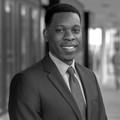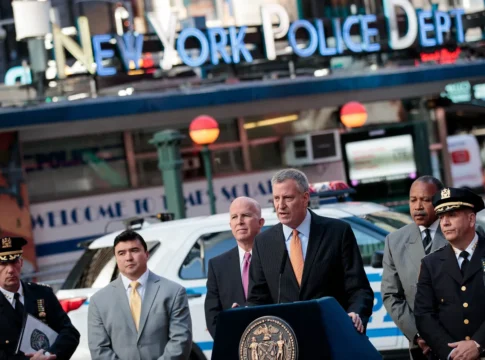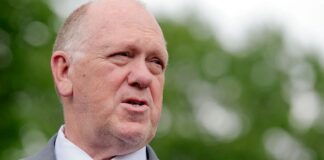Washington, D.C., more than any other city in the country, presents President Donald Trump with the opportunity to meddle in the minutiae of municipal governance. Even in the capital, though, his powers are far from limitless. And the chasm between Trump’s sweeping plan to “clean up” D.C. and his actual authority over the city sets up a stark choice for the president: He can either settle for a significantly diminished version of the kind of change he desires or attempt to push the bounds of the law.
On Monday, Trump announced that he would federalize the city’s police department, deploy the National Guard, and dispatch hundreds of federal officers to patrol the nation’s capital, pledging to address its “crime, bloodshed, bedlam, and squalor.” Trump set a high bar for himself during a press conference in which he promised to, among other things, get rid of D.C.’s “homeless encampments” and “slums,” revoke the city’s cash-bail system, end its so-called sanctuary-city policies, increase penalties for youth offenders, and even fill potholes with fresh asphalt. “Our capital city has been overtaken by violent gangs and bloodthirsty criminals, roving mobs of wild youth, drugged-out maniacs, and homeless people,” he said yesterday at the White House. “And we’re not going to let it happen anymore. We’re not going to take it.” But Trump is likely to find that even this seizure of broad emergency powers does not give him free rein to remake the city to his liking.
The 1973 Home Rule Act, which allows a president to take over Washington’s police force during an emergency, also sets a limit on how long this kind of federalization can last. Under that law, Trump has a maximum of 30 days to maintain control over the Metropolitan Police Department—hardly enough time to conduct a major revamping of policing tactics and enforcement priorities. (The 1973 law actually limits the White House’s authority to 48 hours, allowing an extension to 30 days only after the president has notified Congress why such an accommodation is necessary.) Extending the federalization, which began yesterday, past a month would require an act of Congress. Democrats, whose votes Trump would likely need to pass such a law, have already blasted his actions as those of a would-be authoritarian.
Washington’s attorney general, Brian Schwalb, has denounced Trump’s moves as “unprecedented, unnecessary and unlawful,” challenging the president’s claim that D.C.’s crime levels constitute an emergency. “There is no crime emergency in the District of Columbia,” Schwalb wrote yesterday on X. “We are considering all of our options and will do what is necessary to protect the rights and safety of District residents.” Like many other cities, D.C. experienced a spike in crime during and immediately after the COVID-19 lockdowns but has since seen numbers drop. Homicides are down 12 percent so far this year compared with the same period last year, following a 31 percent decline in 2024, according to MPD. Violent crime is down 26 percent as of Monday, MPD reports, after a 35 percent drop last year. As a result, crime levels in Washington are at a 30-year low.
Still, Trump has looked past the broader statistics to zero in on specific acts of violence—including a bloody assault on a federal staffer earlier this month that the president said led him to get more involved in local crime fighting.
While the D.C. city council echoed Schwalb’s criticism, calling Trump’s actions “a show of force without impact” in a statement, Mayor Muriel Bowser was less combative during a press conference yesterday afternoon. She said Trump’s moves were “unsettling and unprecedented” but “not surprising,” given Trump’s rhetoric in recent weeks. She said she would work with Trump’s allies to review the city’s crime laws and encourage the police force to collaborate with its federal partners to help end “the so-called emergency.”
Trump would need buy-in from Washington’s police officers themselves to enforce the more aggressive form of policing he has requested. (Trump said yesterday that law enforcement should “knock the hell out of” suspected criminals, lock up more juveniles, and otherwise “do whatever the hell they want.”) He received a nod from MPD’s union, which has clashed with the city council over laws that aimed to reduce police misconduct and hold officers accountable for using excessive force. The union said yesterday that it welcomed the federalization and looked forward to working with the White House to tackle local crime.
At the same time, the union asserted that any federal takeover should be temporary, and fissures have already emerged over staffing levels. The department said its force of about 3,200 officers, which has shrunk by about 600 over the past five years, is overstretched and needs more employees. Trump, who wants the department to make more arrests, disagrees, saying yesterday that the officers need only to have the right policies in place. “I was told today, ‘Sir, they want more police.’ I heard a number—3,500 police,” Trump said. “They said, ‘We have 3,500. We need more.’ You don’t need more. That’s so many. That’s like an army.”
As the commander in chief of D.C.’s National Guard, Trump faces fewer limitations in deploying the actual Army onto Washington’s streets. Unlike state National Guard members, who report to a governor, the D.C. National Guard is under the purview of the White House. Even so, D.C.’s National Guard is relatively small. The Army said in a statement yesterday that it was mobilizing 800 soldiers, though only about 100 to 200 would be assisting local law enforcement at any given time.
In practice, that means the troops will likely serve primarily as backup to D.C. police or other law-enforcement officials who might be arresting suspects or conducting direct law-enforcement activities, as California National Guard troops largely did after Trump sent 4,000 of them into Los Angeles earlier this summer. Trump’s eagerness to deploy the guard members to a mostly quiet city sparked accusations of hypocrisy from Democrats, who questioned his delays in dispatching the guard during the deadly January 6, 2021, insurrection at the U.S. Capitol. Other federal agents from branches including the FBI, U.S. Park Police, and the Drug Enforcement Agency have begun emerging on city streets but are supposed to limit their activities to enforcing federal laws.
Yesterday, Trump pledged to overhaul several local D.C. policies—cash bail, immigration enforcement, road construction. The Home Rule Act does not give him authority to do any of those things; instead, it offers broad powers to the locally elected D.C. city council and mayor to govern the city of 700,000.
Once Trump realizes that he does not have the ability to enact his vision quickly, the president is likely to move on to other matters, Joseph Margulies, an attorney and government professor at Cornell University, predicted. “It’s equivalent to the bloviating about buying Greenland or seizing the Panama Canal or making Canada the 51st state, where he’s going to lose interest in an hour and a half,” Margulies told me. “And then, the National Guard will drift away, and the FBI will be reassigned to where they need to be, and the D.C. police will go back to doing what they do. It’s just a pointless symbolic exercise.”
Others see darker possibilities. Trump’s ultimate goal might be to normalize the idea of federal forces storming into Democratic cities, Ruth Ben-Ghiat, an expert on authoritarianism, told me. “It is no surprise that with the flimsiest of excuses—a supposed crime surge that is contradicted flatly by the actual statistics—they are moving to militarize the capital,” she said. “Each laboratory of repression—first L.A., now this—is supposed to habituate people to accept this executive overreach and with the aesthetics of cities being subjugated by troops.”
But unlike mass protests over racial justice or pro-immigrant activism in Los Angeles—incidents that tend to grab the national spotlight at least for a time—the issues of homelessness, youth crime, and municipal disorder are long-standing challenges that defy easy fixes. Trump has shown more interest in the flashier parts of managing the city’s profile, appointing himself the chair of the Kennedy Center, creating the “D.C. Safe and Beautiful Task Force” to tackle crime and urban grime, and overseeing a military parade near the White House. During his press conference yesterday, he took time to tout the recent “upgrades” he has implemented at the White House itself, including renovated marble floors, an abundance of new gold trim, and plans for a massive ballroom.
Citing his “natural instinct” for “fixing things up,” Trump suggested that he would do the same for the nation’s capital, betraying no awareness that his power is far more limited outside the gates of the White House complex. “Not only are we stopping the crime; we’re going to clean up the trash and the graffiti and the grime and the dirt and the broken marble panels and all of the things they’ve done to hurt this city,” he said. “And we’re going to restore the city back to the gleaming capital that everybody wants it to be. It’s going to be something very special.”
Missy Ryan contributed to this report.




